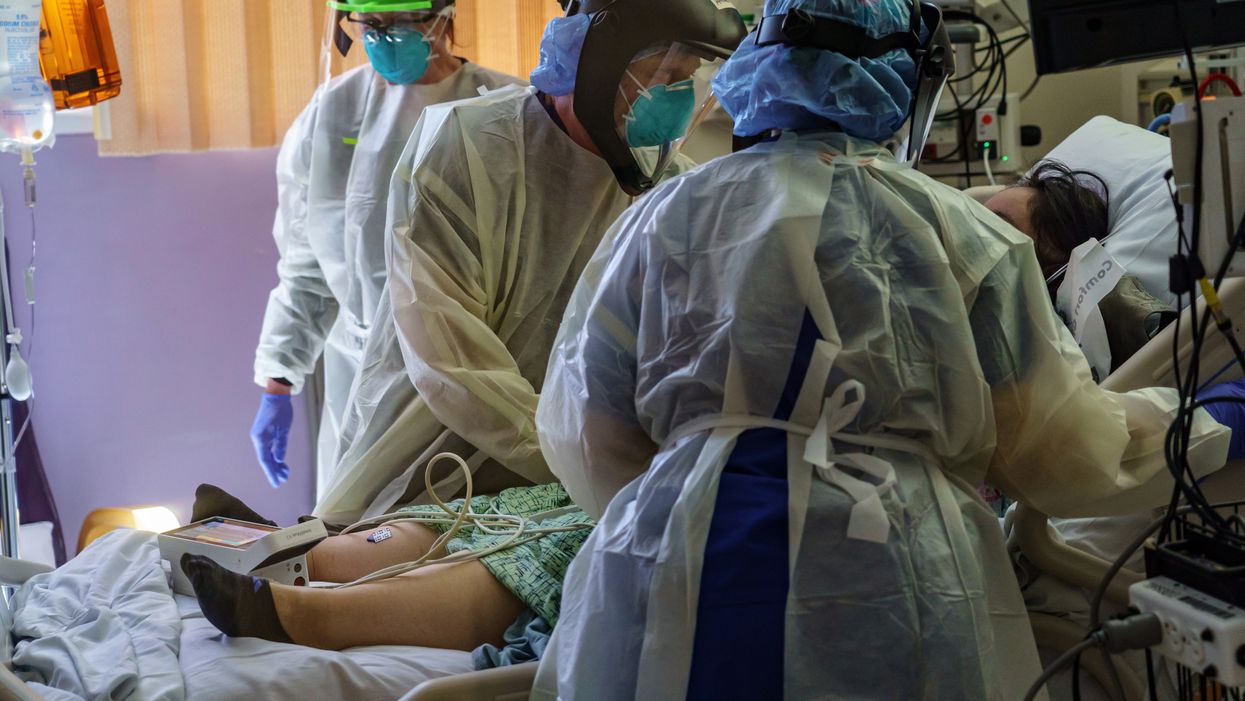
Marcus Yam/Los Angeles Times via Getty Images

It's a complex virus
Although patients with severe cases of COVID-19 often deal with respiratory symptoms, doctors are now finding a wide variety of other symptoms the disease causes as they learn more about the complexities of the novel coronavirus.
People are advised to seek medical attention and be tested for the coronavirus if they have some combination of symptoms such as fever, shortness of breath, and a persistent cough. Ventilators have been used heavily to treat COVID-19 patients who display acute respiratory distress syndrome.
Other symptoms an infected person might display could more easily go unrecognized as COVID-19 symptoms. From the Financial Times:
Respiratory symptoms are still the first signs that doctors look for: cough, shortness of breath and fever.
But less than five months after it was first identified, this new coronavirus is managing to throw up a series of medical mysteries — from blood clots and strokes to digestive problems — that are confounding the scientific community.
From head to foot, Covid-19 causes a fiendish variety of symptoms. Some are relatively mild, such as loss of smell and taste or chilblain-like sores on toes. But others may be fatal, such as when what doctors call an immune storm destroys vital organs. The more this virus is studied, the more complex it appears to be.
In a study of United Kingdom hospitals that included nearly 17,000 patients, researchers found that two non-respiratory symptoms were very common among COVID-19 patients: muscle and joint pain and fatigue; and abdominal pain, vomiting, and diarrhea.
Making things more complicated, many patients suffer from multiple categories of symptoms simultaneously. Some patients display the normal symptoms of a fever and cough, then appear to get better, then find themselves in the hospital a week or so later with more severe symptoms.
The coronavirus can also cause inflammation issues, which may explain why people who are obese are much more susceptible to serious illness or death from COVID-19.
Cardiovascular disease is the most common COVID-19 comorbidity, and the disease also can trigger an exaggerated immune response that can lead to abnormal blood clotting and stroke.
"Every day we're learning of new tricks that the virus plays," says Peter Openshaw, professor of experimental medicine at Imperial College London, according to the Financial Times. "It is remarkable to see a disease unfolding in front of our eyes with so many twists and turns."